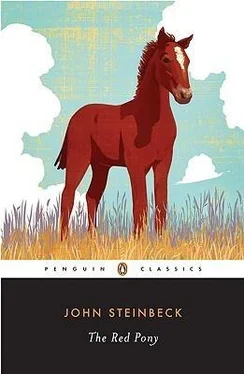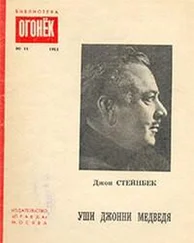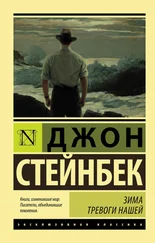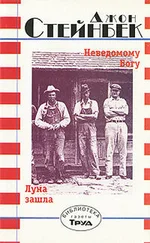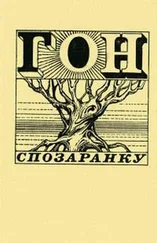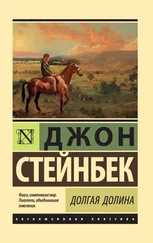Джон Стейнбек - The Red Pony
Здесь есть возможность читать онлайн «Джон Стейнбек - The Red Pony» весь текст электронной книги совершенно бесплатно (целиком полную версию без сокращений). В некоторых случаях можно слушать аудио, скачать через торрент в формате fb2 и присутствует краткое содержание. Год выпуска: 1937, ISBN: 1937, Издательство: Penguin Group UK, Жанр: Проза, short_story, на английском языке. Описание произведения, (предисловие) а так же отзывы посетителей доступны на портале библиотеки ЛибКат.
- Название:The Red Pony
- Автор:
- Издательство:Penguin Group UK
- Жанр:
- Год:1937
- ISBN:9780141962825
- Рейтинг книги:3 / 5. Голосов: 1
-
Избранное:Добавить в избранное
- Отзывы:
-
Ваша оценка:
- 60
- 1
- 2
- 3
- 4
- 5
The Red Pony: краткое содержание, описание и аннотация
Предлагаем к чтению аннотацию, описание, краткое содержание или предисловие (зависит от того, что написал сам автор книги «The Red Pony»). Если вы не нашли необходимую информацию о книге — напишите в комментариях, мы постараемся отыскать её.
The Red Pony — читать онлайн бесплатно полную книгу (весь текст) целиком
Ниже представлен текст книги, разбитый по страницам. Система сохранения места последней прочитанной страницы, позволяет с удобством читать онлайн бесплатно книгу «The Red Pony», без необходимости каждый раз заново искать на чём Вы остановились. Поставьте закладку, и сможете в любой момент перейти на страницу, на которой закончили чтение.
Интервал:
Закладка:
Steinbeck, once again, was only forwarding, with his own revisions, the lessons of agrarian fiction found in the works of Hamlin Garland and Willa Cather, and he was assisted in this regard by his fellow writers Erskine Caldwell and William Faulkner as well. But in Steinbeck’s The Red Pony we find a singular instance of the daily rounds of the farmer’s life as it impinges on the felt need of a small boy to force some space for himself in the neighboring world. It is also, notably, a story in which anger in open and indirect manifestations is the chief emotion expressed, rage against the necessity of death that encircles all events. Such anger is classically an aspect of grieving, reminding us once again that Steinbeck wrote these stories in the shadow of his mother’s mortality and the matched prospect of his father’s decline. But if The Red Pony served as a channel for Steinbeck’s grief, the parables the book contains testify also to the supremacy of craft over emotion, as well as signaling a move away from the stylistically luxuriant early prose toward the matter-of-fact manner, the perfect detachment of irony that characterizes his greatest work. They attest to the author’s arrival at artistic maturity, one sign of which is his refusal to allow Jody an equivalent crossing-over.
The Red Pony is not, as I stated in the beginning, a book for children, but it is preeminently a book about a child. Perhaps the present edition will lead readers to an unimpeded recognition of the true nature and enduring importance of a story cycle that was central not only to the author’s emergence as a major American novelist but to the development of a distinctly midtwentieth-century genre, opening up as it did a whole new range of possibilities about the fictional presentation of a child’s world. For whatever else this book may be, it is most assuredly a book about a boy, a caterpillar kid moreover, not a fragile adolescent butterfly, in whom we may easily recognize that embryonic barbarian who once stood in the way of our path from home.
Suggestions for Further Reading
Astro, Richard. John Steinbeck and Edward F. Ricketts: The Shaping of a Novelist . Minneapolis: University of Minnesota Press, 1973.
Benson, Jackson J. The True Adventures of John Steinbeck, Writer . New York: Viking Penguin, 1984.
Fontenrose, Joseph. John Steinbeck: An Introduction and Interpretation . New York: Holt, Rinehart and Winston, Inc., 1963.
French, Warren. John Steinbeck (second edition, revised). Boston: Twayne Publishers, 1975.
Hughes, R. S. Beyond the Red Pony: A Reader’s Companion to Steinbeck’s Complete Short Stories . Metuchen and London: The Scarecrow Press, 1987.
Lisca, Peter. The Wide World of John Steinbeck . New Brunswick: Rutgers University Press, 1958.
Timmerman, John H. The Dramatic Landscape of Steinbeck’s Short Stories . Norman and London: University of Oklahoma Press, 1990.
The Gift
At daybreak Billy Buck emerged from the bunkhouse and stood for a moment on the porch looking up at the sky. He was a broad, bandy-legged little man with a walrus mustache, with square hands, puffed and muscled on the palms. His eyes were a contemplative, watery gray and the hair which protruded from under his Stetson hat was spiky and weathered. Billy was still stuffing his shirt into his blue jeans as he stood on the porch. He unbuckled his belt and tightened it again. The belt showed, by the worn shiny places opposite each hole, the gradual increase of Billy’s middle over a period of years. When he had seen to the weather, Billy cleared each nostril by holding its mate closed with his forefinger and blowing fiercely. Then he walked down to the barn, rubbing his hands together. He curried and brushed two saddle horses in the stalls, talking quietly to them all the time; and he had hardly finished when the iron triangle started ringing at the ranch house. Billy stuck the brush and currycomb together and laid them on the rail, and went up to breakfast. His actions had been so deliberate and yet so wasteless of time that he came to the house while Mrs. Tiflin was still ringing the triangle. She nodded her gray head to him and withdrew into the kitchen. Billy Buck sat down on the steps, because he was a cow-hand, and it wouldn’t be fitting that he should go first into the dining-room. He heard Mr. Tiflin in the house, stamping his feet into his boots.
The high jangling note of the triangle put the boy Jody in motion. He was only a little boy, ten years old, with hair like dusty yellow grass and with shy polite gray eyes, and with a mouth that worked when he thought. The triangle picked him up out of sleep. It didn’t occur to him to disobey the harsh note. He never had: no one he knew ever had. He brushed the tangled hair out of his eyes and skinned his nightgown off. In a moment he was dressed—blue chambray shirt and overalls. It was late in the summer, so of course there were no shoes to bother with. In the kitchen he waited until his mother got from in front of the sink and went back to the stove. Then he washed himself and brushed back his wet hair with his fingers. His mother turned sharply on him as he left the sink. Jody looked shyly away.
“I’ve got to cut your hair before long,” his mother said. “Breakfast’s on the table. Go on in, so Billy can come.”
Jody sat at the long table which was covered with white oilcloth washed through to the fabric in some places. The fried eggs lay in rows on their platter. Jody took three eggs on his plate and followed with three thick slices of crisp bacon. He carefully scraped a spot of blood from one of the egg yolks.
Billy Buck clumped in. “That won’t hurt you,” Billy explained. “That’s only a sign the rooster leaves.”
Jody’s tall stern father came in then and Jody knew from the noise on the floor that he was wearing boots, but he looked under the table anyway, to make sure. His father turned off the oil lamp over the table, for plenty of morning light now came through the windows.
Jody did not ask where his father and Billy Buck were riding that day, but he wished he might go along. His father was a disciplinarian. Jody obeyed him in everything without questions of any kind. Now, Carl Tiflin sat down and reached for the egg platter.
“Got the cows ready to go, Billy?” he asked.
“In the lower corral,” Billy said. “I could just as well take them in alone.”
“Sure you could. But a man needs company. Besides your throat gets pretty dry.” Carl Tiflin was jovial this morning.
Jody’s mother put her head in the door. “What time do you think to be back, Carl?”
“I can’t tell. I’ve got to see some men in Salinas. Might be gone till dark.”
The eggs and coffee and big biscuits disappeared rapidly. Jody followed the two men out of the house. He watched them mount their horses and drive six old milk cows out of the corral and start over the hill toward Salinas. They were going to sell the old cows to the butcher.
When they had disappeared over the crown of the ridge Jody walked up the hill in back of the house. The dogs trotted around the house corner hunching their shoulders and grinning horribly with pleasure. Jody patted their heads—Doubletree Mutt with the big thick tail and yellow eyes, and Smasher, the shepherd, who had killed a coyote and lost an ear doing it. Smasher’s one good ear stood up higher than a collie’s ear should. Billy Buck said that always happened. After the frenzied greeting the dogs lowered their noses to the ground in a businesslike way and went ahead, looking back now and then to make sure that the boy was coming. They walked up through the chicken yard and saw the quail eating with the chickens. Smasher chased the chickens a little to keep in practice in case there should ever be sheep to herd. Jody continued on through the large vegetable patch where the green corn was higher than his head. The cowpumpkins were green and small yet. He went on to the sagebrush line where the cold spring ran out of its pipe and fell into a round wooden tub. He leaned over and drank close to the green mossy wood where the water tasted best. Then he turned and looked back on the ranch, on the low, whitewashed house girded with red geraniums, and on the long bunkhouse by the cypress tree where Billy Buck lived alone. Jody could see the great black kettle under the cypress tree. That was where the pigs were scalded. The sun was coming over the ridge now, glaring on the whitewash of the houses and barns, making the wet grass blaze softly. Behind him, in the tall sagebrush, the birds were scampering on the ground, making a great noise among the dry leaves; the squirrels piped shrilly on the side-hills. Jody looked along at the farm buildings. He felt an uncertainty in the air, a feeling of change and of loss and of the gain of new and unfamiliar things. Over the hillside two big black buzzards sailed low to the ground and their shadows slipped smoothly and quickly ahead of them. Some animal had died in the vicinity. Jody knew it. It might be a cow or it might be the remains of a rabbit. The buzzards overlooked nothing. Jody hated them as all decent things hate them, but they could not be hurt because they made away with carrion.
Читать дальшеИнтервал:
Закладка:
Похожие книги на «The Red Pony»
Представляем Вашему вниманию похожие книги на «The Red Pony» списком для выбора. Мы отобрали схожую по названию и смыслу литературу в надежде предоставить читателям больше вариантов отыскать новые, интересные, ещё непрочитанные произведения.
Обсуждение, отзывы о книге «The Red Pony» и просто собственные мнения читателей. Оставьте ваши комментарии, напишите, что Вы думаете о произведении, его смысле или главных героях. Укажите что конкретно понравилось, а что нет, и почему Вы так считаете.
